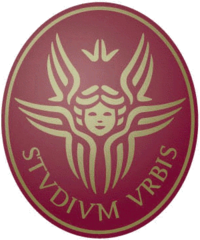Reader (Associate Professor)
Department of Electrical and Electronic Engineering
Bio-inspired Metabolic Technology Laboratory in the Centre for Bio-Inspired Technology
Bio-Inspired microelectronics for improving human health
Abstract
In the last decade, we have seen a convergence of microelectronics into the world of healthcare providing novel solutions for early detection, diagnosis and therapy of disease. This has been made possible due to the emergence of CMOS technology, allowing fabrication of advanced systems with complete integration of sensors, instrumentation and processing, enabling design of miniaturised medical devices which operate with low-power.
In this talk I present how my lab is applying microelectronics to improve human health. Specifically, I will focus on two areas: the first will be on the management of chronic disease using Bio-Inspired technology, whereby low-power CMOS-based systems can be designed to replicate biology to provide portable personalized medical devices such as the Bio-Inspired Artificial Pancreas (BiAP), which we have developed for closed-loop control of blood glucose used in the management of Diabetes. The second is on rapid screening of disease, whereby advances in CMOS-based Ion-Sensitive Field Effect Transistor technology (ISFETs) is now allowing implementation large chemical sensor arrays for point-of-care diagnostic systems as well as DNA sequencing platforms which are used in early diagnosis and screening in hospitals.
Speaker Bio
Pantelis Georgiou currently holds the position of Reader (Associate Professor) at Imperial College London within the Department of Electrical and Electronic Engineering. He is the head of the Bio-inspired Metabolic Technology Laboratory in the Centre for Bio-Inspired Technology; a multi-disciplinary group that invents, develops and demonstrates advanced micro-devices to meet global challenges in biomedical science and healthcare. His research includes ultra-low power micro-electronics, bio-inspired circuits and systems, lab-on-chip technology and application of micro-electronic technology to create novel medical devices. One of his key research areas is new technologies for treatment of diabetes such as the artificial pancreas but also develops novel Lab-on-Chip technology with application in genomics and diagnostics targeted towards infectious disease and antimicrobial resistance (AMR), in addition to wearable technologies for rehabilitation of chronic conditions.
Dr. Georgiou graduated with a 1st Class Honours MEng Degree in Electrical and Electronic Engineering in 2004 and Ph.D. degree in 2008 both from Imperial College London. He then joined the Institute of Biomedical Engineering as Research Associate until 2010, when he was appointed Head of the Bio-inspired Metabolic Technology Laboratory. In 2011, he joined the Department of Electrical & Electronic Engineering, where he currently holds an academic faculty position. He conducted pioneering work on the silicon beta cell and is now leading the project forward to the development of the first bio-inspired artificial pancreas for treatment of Type I diabetes. In addition to this, he made significant contributions to the development of integrated chemical-sensing systems in CMOS. He has pioneered the development of the Ion-Sensitive Field Effect Transistor, an integrated pH sensor which is currently being used in next generation DNA sequencing machines, demonstrating for the first time its use in low-power weak-inversion, and its capability in a multimodal sensing array for Lab-on-Chip applications. Dr. Georgiou is a senior member of the IEEE and IET and serves on the BioCAS and Sensory Systems technical committees of the IEEE CAS Society. He is an associate editor of the IEEE Sensors and TBioCAS journals. He is also the CAS representative on the IEEE sensors council. In 2013 he was awarded the IET Mike Sergeant Achievement Medal for his outstanding contributions to engineering and development of the bio-inspired artificial pancreas. He is currently an IEEE Distinguished Lecturer in Circuits and Systems.





